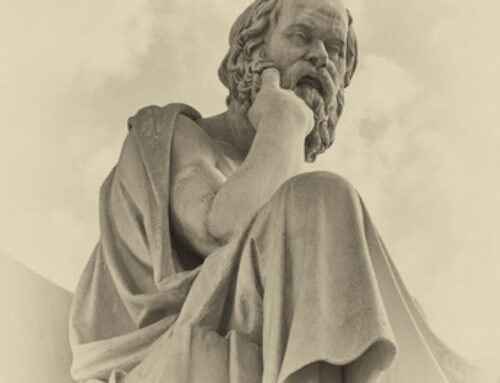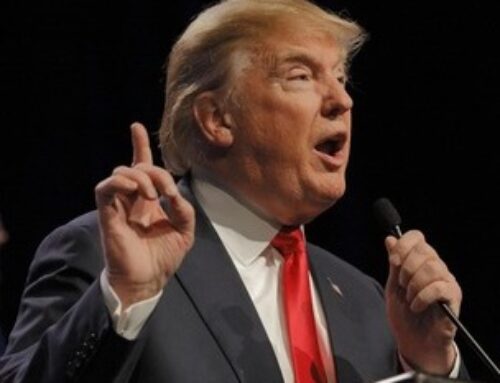
These and many other once-deplorable ideas are so common that fewer and fewer people think to challenge them. But recently something happened that offers hope of a return to sanity—A young professional athlete put integrity above money and acceptance and spoke out against inhumanity.
The young athlete’s s name is Enes Kanter and he came to the U.S. from Turkey some years ago to play center for the Boston Celtics. One night while walking through the arena tunnel to the basketball court, he passed a woman who said to him, “How can you remain silent when your fellow Muslims are being persecuted in China?” She was referring to the more than a million Uighur Muslims held in detention centers in far western China.
The woman’s question stayed in his mind and when the game was over he thought more about it and decided to speak out for the Uighurs and other persecuted people. For example, he began having messages like “Free China” inscribed on his basketball sneakers and denouncing the persecution taking place in that country. Taking that stand has not been easy for him. Many American professional athletes publically accuse their own country of systemic racism, homophobia, xenophobia, and other failings, and raise a fist or take a knee in disrespect during the playing of the national anthem. Meanwhile, they refuse to criticize China, with whom they have business ties.
Despite pressure from his fellow athletes and the league, Enes refused to suppress his convictions. When asked why he was speaking out publicly against Chinese oppression, he simply said that his integrity and values are more important to him than any sports career or Olympic gold medal could ever be.
Enes has not only denounced the inhumanity of countries like China. He has also praised America for guaranteeing freedom to all its citizens, something his native Turkey (like many other countries) does not provide. This appreciation has led him not only to become an American citizen but also to legally change his name from Enes Kanter to Enes Kanter Freedom!
Enes’ story is not merely touching. It is also inspirational in its richness of meaning and breadth of reference:
His story tells Muslims in this country and around the world that, although no country has ever been or will ever be perfect, America’s founding principles— especially its freedoms of speech, religion, and assembly—are most consistent with God’s will.
His story also reminds Christians of numerous biblical truths, notably these: That the two great commandments are to love God with all our hearts and minds and souls, and to love our neighbors as we love ourselves. That “not everyone who says Lord, Lord will enter the kingdom of heaven” but only those who put words into action and do the will of the Father will enter. And that gaining the whole world will mean nothing if in the process we lose our immortal souls.
His story helps America’s religious leaders remember that their primary responsibility is guiding their congregations to distinguish good from evil, virtue from sin, and wisdom from foolishness, and to live according to God’s will. Unfortunately, many religious leaders have failed to make such distinctions and, as a result, have embraced dangerous social and political movements rather than opposing them. Enes provides the example they should have been providing.
His story helps all Americans understand why people from around the world yearn for the freedom and opportunity this country offers. Many take great risks and suffer great hardship to leave their countries and come to America. Like Enes, their experiences offer us a perspective on our country that our parents and grandparents shared but many of us have lost. Regaining it is an important step in restoring our culture.
Finally, a personal reaction to Enes’ story:
As a Catholic, I have been taught since childhood to look to the hierarchy of my Church for moral and spiritual leadership and example. I have not rejected that teaching, but today my understanding of it is more nuanced. I understand that bishops are, like me, human and thus capable of error. Prudence therefore requires that I use my God-given intelligence and assess their teachings before embracing them. If the consequences of the teachings are consistent with the Gospel and produce good “fruit,” I embrace them. Otherwise, I do not. (Matt 7:20)
Enes’ words and actions pass that test. The fact that he is a Muslim rather than a Catholic (and a basketball player rather than a prelate) have not entered into my assessment. I see the irony of that fact, of course, and welcome it as a reminder that we are all children of God; that He speaks to all of us when and in whatever manner He wishes; and that the Holy Spirit can visit the minds and hearts of anyone, including one whose religious tradition does not acknowledge the Trinity.
Blessed are those who, like Enes Kanter Freedom, heed the promptings of the Holy Spirit.
Copyright© 2021 by Vincent Ryan Ruggiero. All rights reserved


